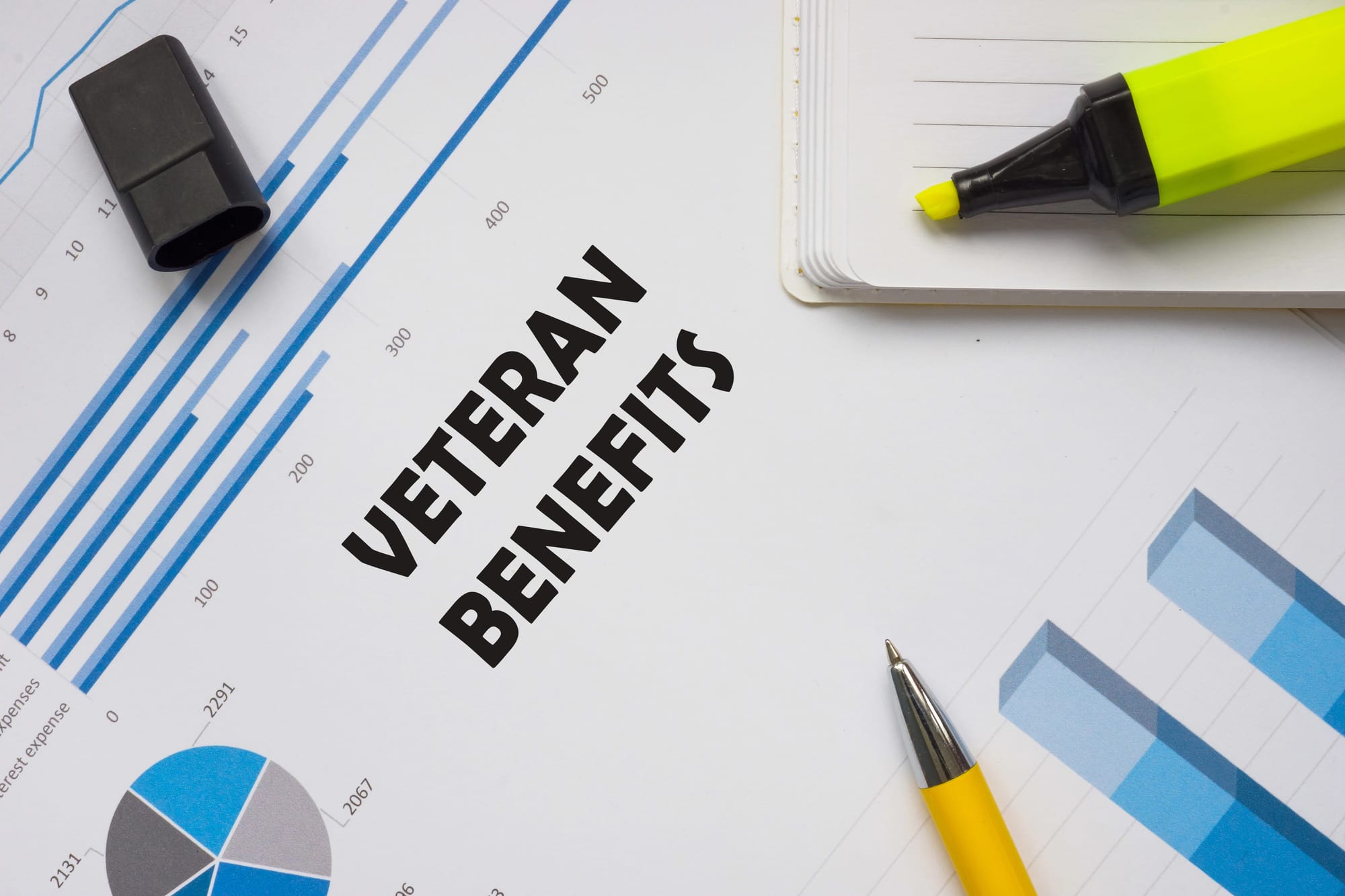Family Caregivers Getting Paid What is a Reasonable Rate?
Learn how to create a fair and comprehensive family caregiver contract for assisting an elderly relative, including daily care and living in their home. Use state-specific long-term care surveys for reference and include case management services, vacation time, and limits on care provided.

Deborah (Pendleton, KY) asks,
I would like to write a contract as a family caregiver to an elderly relative with whom I live.
What is a fair amount to request for daily assisting an elderly relative and living in their home while providing care? (My two siblings do not live in the same home with the relative as I do. They do not provide daily care.)
Thanks in advance for your time.
Deborah
Here is a video that explains the Genworth Cost of Care
Deborah,
Every year, Genworth Financial releases their yearly Cost of Care Long Term Care Survey, which provides valuable insights into the cost of care. MetLife also has a survey on the Impact of Caregiving and the Working Caregiver.
Both organizations break the cost of care down by state—and sometimes by cities within the state—and categorize it according to the level of service provided.
I strongly encourage you to consider a family caregiver contract. I have included more information for you to review on this topic.
Please do not hesitate to contact us at CareGiver Relief. We are here to support you. I've also provided additional information below to help you explore other resources.
Warm Regards,
Diane Carbo RN
More information for you on...
How Family Caregivers Can Get Paid: A Guide to Creating a Family Caregiver Contract
Introduction
Family caregivers often provide essential personal care services for aging parents, disabled relatives, or other family members, yet many do so without compensation. This guide aims to help family caregivers navigate options to get paid for caregiving services, including using programs like the Veteran Directed Care Program, Medicaid Waiver Programs, and more.
What is a Family Caregiver Contract?
If you are preparing a family caregiver contract, you are not only providing hands on aide services, you are coordinating care as well.
Make sure you put in case management services a few hours every month as well.
I would suggest that you go online and download a copy of the long term care studies and start a file.
Every year, in January, when the new studies come out, as the rates change, your rates on the contract should, as well.
Keep a copy of each new years study, in a file, for future reference.
Uninvolved family members may need to see proof of the cost of services in your area.
They will not be able to argue with these extensive and comprehensive studies.
You should be paid what is the going rate for your area.
Please do not forget to include vacation time and limits as far as the care you will provide in your family caregiver contract.
If you need time for your own family, make sure you are very specific as, to what you can and cannot do, the time you will be able to provide care and the time you will need to be with your own family.
Having these things in writing makes it easier when ever one understands the expectations and boundaries of the other.
If you are working on spending down for Medicaid, you may want to look at this section.
I am here to educate caregivers on how to take care and protect themselves as they provide care for others. So many begin the caregiving journey with such good intentions, only to be financially, emotionally, and medically devastated.
I want to help you, to take care of yourself, so that you can take care of your family member.
MOre on Family Caregivers Getting Paid What is a Reasonable Rate?
Family caregivers often provide essential personal care services for aging parents, disabled relatives, or other family members, yet many do so without compensation. This guide aims to help family caregivers navigate options to get paid for caregiving services, including using programs like the Veteran Directed Care Program, Medicaid Waiver Programs, and more.
Understanding Family Caregiver Contracts
A family caregiver contract is a formal document that establishes a clear agreement between a family caregiver and the care recipient. This agreement outlines essential aspects, including:
- Roles and Responsibilities: The specific duties the caregiver will perform, such as personal care services, daily living assistance, transportation services, or coordinating with community-based services.
- Payment Terms: The amount the caregiver will be compensated, payment frequency, and method (e.g., check, direct deposit).
- Conditions: Terms such as working hours, days off, use of respite care, and backup care providers in emergencies.
This document not only ensures transparency but also fosters fairness among family members who may not be directly involved in caregiving. It helps avoid misunderstandings or disputes over caregiving expectations and compensation.
Why Consider a Family Caregiver Contract?
For family caregivers, particularly those living in the same house as the care recipient, a contract serves multiple purposes:
Formalizes the Role: Transforming informal caregiving into a formal arrangement validates the caregiver's work. This is particularly useful when applying for programs that pay family caregivers, such as Veteran Directed Care or Medicaid Waiver Programs.
- Factor in the Caregiving Scope: State Medicaid Program Standards: If the care recipient is Medicaid-eligible, research rates offered by Medicaid-funded programs in your area. California’s Medicaid Program, for instance, outlines specific compensation for personal care providers and nursing facility alternatives. Adjust for Family Dynamics: Caregivers often take on more work when living with the care recipient, requiring adjustments to the rate to account for additional responsibilities. Government Program Guidelines: Many VA Medical Centers and programs like the Veteran Directed Care Program offer compensation rates for eligible family caregivers, providing benchmarks for fair pay.
- Personal Care Services: Assistance with bathing, dressing, eating, and mobility.
- Daily Living Activities: Meal preparation, medication management, and transportation.
- Health-Related Tasks: Monitoring vital signs, managing medical equipment, or providing support for chronic conditions like dementia.
How to Calculate Pay:
Hourly Rate: Align with local rates for in-home care or adult day care services as a baseline.
Full-Time Equivalent: Multiply the hours spent caregiving by the local hourly rate. Factor in time for respite care or emergency response services.
Daily Stipend: Determine a daily or weekly rate if providing continuous care.
Resources to Support Family Caregivers
Elder Law Attorneys: To ensure legal compliance and fairness in the contract.
Community Services Branches: For information on consumer-directed care programs or non-Medicaid funded services.
Veterans Affairs: Assistance with veterans programs and benefits that compensate family caregivers.
Human Services Agencies: Guidance on state-specific programs, including disability services and Medicaid eligibility.
By creating a family caregiver contract, you formalize the caregiving role, secure fair compensation, and pave the way to access financial assistance through programs like Medicaid Waivers, Veteran Directed Care, and others. This ensures both the caregiver and the care recipient benefit from a structured and supportive arrangement.

Programs That Pay Family Caregivers
Many family caregivers take on significant responsibilities when caring for aging parents, disabled family members, or veterans. While caregiving is often done out of love and duty, it can be financially burdensome. Fortunately, several programs provide financial assistance to family caregivers, ensuring they are compensated for their time and effort.
Veteran Directed Care Program: Financial Assistance for Family Caregivers
The Veteran Directed Care Program (VDC) is a valuable resource for veterans and their family caregivers. Administered by Veterans Affairs (VA), this program allows eligible veterans to hire their own care providers, including family members, for personal care services.
Key Features:
- Self-Directed Services: Veterans can choose who provides care, allowing family members to serve as paid caregivers.
- Comprehensive Support: Covers services like daily living assistance, respite care, and emergency response systems.
- Financial Assistance: Veterans receive funds to pay for care, offering flexibility to meet individual needs.
Eligibility:
To qualify, the veteran must:
- Be enrolled in VA healthcare.
- Require home and community-based services.
- Reside in an area served by the program (available in many VA Medical Centers).
Medicaid Waiver Programs: Funding for In-Home Care
Many states offer Medicaid Waiver Programs, which allow individuals to receive care in their homes instead of nursing facilities. These programs often permit family members, including spouses and legal guardians, to serve as paid caregivers.
Key Features:
- Home-Based Care: Provides funding for in-home care services.
- Consumer-Directed Options: Care recipients can hire their own personal care providers, including certain family members.
- Flexibility: Covers a range of services, from transportation services to daily living assistance.
Examples:
- California’s Medicaid Program: Offers programs that pay family caregivers to support aging parents or disabled relatives.
- Disabled Waiver Programs: Focused on individuals with disabilities who need care at home.
Eligibility:
Care recipients must:
- Be Medicaid-eligible.
- Meet state-specific criteria for disability or care needs.
Non-Medicaid Funded Programs: State-Specific Support
Some states offer programs outside of Medicaid to compensate family caregivers. These non-Medicaid funded programs are often administered by local human services agencies or community service branches.
Key Features:
- Provide financial support for caregivers who do not qualify for Medicaid-funded programs.
- Offer services like respite care, mental health services, and training for caregivers.
- Focus on flexibility to accommodate various care needs.
Example:
- California’s Non-Medicaid Funded Services: Offers financial support and caregiver compensation programs to assist family caregivers.
Who Can Be a Paid Family Caregiver?
Programs that pay family caregivers have specific eligibility requirements regarding who can serve as a paid caregiver. Generally, eligible caregivers include:
- Spouses: Certain programs, like Veteran Directed Care, allow spouses to be compensated for caregiving.
- Adult Family Members: Many Medicaid Waiver Programs permit adult family members living with or near the care recipient to receive payment.
- Legal Guardians: Programs often include legal guardians as eligible caregivers.
Restrictions:
Some programs exclude caregivers living in the same house as the care recipient unless they meet specific criteria.

Veteran Directed Care: A Key Resource for Family Caregivers
The Veteran Directed Care Program is particularly beneficial for caregivers of veterans. It empowers veterans to maintain control over their care while providing financial support to caregivers.
Benefits for Family Caregivers:
- Veterans can hire family members as personal care assistants for tasks like bathing, dressing, and medication management.
- Financial and Support Services: The program provides funds to cover caregiving expenses, including payments to caregivers.
- Respite Care: Offers relief for family caregivers, ensuring they have time to recharge.
Accessing the Program:
- Contact your local VA Medical Center to learn about the program's availability.
- Work with the VA’s community services branch to enroll and set up care services.
Additional Considerations
Legal and Financial Guidance:
- Consult an elder law attorney to ensure compliance with program requirements and caregiver contracts.
Combining Programs:
- Many caregivers utilize multiple programs, such as Medicaid Waivers and Veteran Directed Care, to maximize financial assistance.
Respite and Emergency Services:
- Include provisions for respite care and emergency response systems in your caregiving plan to ensure well-rounded support.
Programs like the Veteran Directed Care Program, Medicaid Waiver Programs, and non-Medicaid funded services provide vital financial support to family caregivers. Whether you are caring for a veteran, an aging parent, or a disabled family member, these programs can help alleviate the financial burden of caregiving. For assistance navigating these options, reach out to local human services agencies, VA Medical Centers, or resources like Caregiver Relief.
Non-Medicaid Funded Services: Alternatives for Care Recipients
For care recipients who may not qualify for Medicaid-funded programs, many states offer non-Medicaid funded services that provide financial and caregiving support. These programs are often designed to assist seniors, individuals with disabilities, and family caregivers with services that improve quality of life and ease caregiving burdens.
Examples of Non-Medicaid Funded Services
- Community-Based Services:
- Funded by local or state governments, these services include adult day care services, transportation services, and home modifications.
- Focus on supporting independence and minimizing the need for nursing facility care.
- Elder Care Programs:
- Programs like the Elder Care Program in various states provide financial assistance and resources for seniors needing in-home care or respite care.
- Caregiver Support Initiatives:
- The Family Caregiver Support Program offers educational resources, training, and sometimes financial help for family caregivers.
Eligibility Criteria
Care recipients typically must demonstrate financial need or require assistance with daily living activities.
- Bathing
- Dressing
- Grooming
- Eating
- Mobility and transferring
Respite care offers temporary relief for family caregivers, allowing them to take breaks while ensuring the care recipient’s needs are met.
Available through government programs, nonprofit organizations, and community-based services.
Options include in-home respite care, adult day care services, or short-term stays in a care facility.

Emergency Response Systems
- These systems include devices or services that provide emergency response support, such as medical alert systems and fall detection devices.
- Many state Medicaid programs or veterans benefits cover the cost of these systems for eligible care recipients.
- Transportation Services: Assistance with getting to medical appointments, grocery stores, or community centers.
- Mental Health Services: Counseling and support for both caregivers and care recipients.
Disability Services: Programs designed to assist individuals with disabilities in living more independently.
Medicaid Waiver Programs: Cover costs for in-home care and allow certain family members to be paid caregivers.
Veteran Directed Care Program: Provides funding for veterans to hire personal care providers, including family caregivers.
Affordable Care Act Provisions: Protect family caregivers by ensuring access to health insurance and other benefits.
- Many nonprofits offer grants, scholarships, or stipends to assist caregivers with expenses related to caregiving, such as transportation, respite care, or home modifications.
- States like California have non-Medicaid funded programs that provide financial support and caregiver compensation to help families manage caregiving costs.
- Family caregivers may qualify for tax credits or deductions for out-of-pocket caregiving expenses, such as medical supplies or emergency response systems.
- Long-term care insurance policies sometimes include provisions for paying family caregivers.
Consumer-directed care programs allow care recipients to use Medicaid funds or private payments to hire family caregivers.
- Provides assistance for medical appointments, grocery shopping, or other essential errands.
- Some programs may include reimbursement for mileage or access to transportation vouchers.
- Support programs recognize the mental and emotional toll of caregiving. Services include:
- Access to licensed counselors or therapists.
- Support groups where caregivers can share experiences and advice.
- Crisis intervention for caregivers dealing with burnout or emotional distress.
Educational workshops on topics like:
- Managing daily living activities (bathing, dressing, meal prep).
- Understanding and managing chronic conditions like dementia or Parkinson’s disease.
- Navigating legal and financial planning, such as drafting family caregiver contracts.
Programs offer respite care to provide temporary relief, allowing caregivers to recharge and attend to personal needs.
- Options may include in-home respite care or stays at adult day care centers.
- Typically available through local offices on aging or community-based services.
- Programs are often state-funded or operated by nonprofit organizations.
Information and Referrals: Direct caregivers to programs and services like
Medicaid Waiver Programs, Veteran Directed Care, and non-Medicaid funded services.
- Care Coordination: Help in managing multiple care services, including in-home care, adult day care services, and transportation.
- Financial Assistance: Guidance on accessing funding or reimbursement options for caregiving expenses.
- Community Services Branch: Connects caregivers with nearby resources, such as affordable care act provisions or local caregiving support initiatives.
- Elder Law Assistance: Provides access to legal advice for creating caregiver contracts or understanding Medicaid eligibility requirements.
- The care recipient must meet Medicaid eligibility criteria, typically based on income and asset limits.
- A documented need for assistance with daily living activities is often required.
- In-Home Care: Assistance with personal care services, such as bathing, dressing, and grooming.
- Adult Day Care Services: Supervised programs offering social and health services in a group setting.
- Respite Care: Temporary relief for family caregivers, funded through Medicaid.
- Some Medicaid programs allow care recipients to direct their care, hiring their own personal care providers—including family members.
- Examples include Medicaid’s Self-Directed Services or Cash and Counseling programs.
- Waivers are available in many states to allow recipients to remain in their homes rather than transition to nursing facilities.
- These programs frequently include provisions for compensating family caregivers.
- Provides financial assistance to family caregivers of veterans, allowing veterans to hire family members as personal care assistants.
- States offer additional programs for those who don’t qualify for Medicaid. These may include funding for transportation, emergency response systems, or home modifications.
- Long-term care insurance policies often include provisions for compensating family caregivers, particularly for in-home care.
- Emotional well-being through counseling and training.
- Financial stability by leveraging Medicaid and other funding programs.
- Improved care quality for recipients, whether through in-home care, respite care, or transportation services.
Family caregivers may need to provide documentation of their caregiving role and expenses.
Types of Care Covered
Family caregivers often provide a wide range of services, and many programs—whether Medicaid-funded, non-Medicaid funded, or private—cover essential types of care.
Personal Care Services
These include hands-on assistance with daily living activities such as:Personal care services are critical for care recipients who wish to remain at home rather than transition to a nursing facility. Medicaid-funded nursing home alternatives, such as self-directed services, often allow family caregivers to be paid for providing these services.
Respite Care
Additional Services:
Financial Assistance for Family CaregiversProviding care for a loved one can place a significant financial strain on family caregivers. Fortunately, there are several avenues for financial assistance to help cover caregiving expenses.
Government Programs
Nonprofit Organizations
State-Specific Programs
Tax Benefits
Private Options
How to Access Financial Assistance
Local Offices: Contact your state’s human services branch or area agency on aging for information about available programs.
Nonprofit Resources: Organizations like the National Family Caregiver Support Program and AARP offer guides and funding opportunities.
VA Medical Centers: For caregivers of veterans, the Veterans Affairs office can provide information on eligibility for programs like Veteran Directed Care.
By utilizing non-Medicaid funded services, understanding the types of care covered, and exploring financial assistance options, family caregivers can access the resources they need to provide quality care while reducing the financial strain on themselves and their families.
Support Services for Family Caregivers Family caregivers face unique challenges while providing care to loved ones, often balancing emotional, physical, and financial responsibilities. Thankfully, a wide range of support services for family caregivers exists to provide assistance, education, and financial relief.
Family Caregiver Support Programs are designed to equip caregivers with the resources and tools they need to succeed in their role.
These programs offer:
Transportation Services
Mental Health Services
Caregiver Training
Respite Care Options
Eligibility and Access
Local Offices on Aging and Human Services Branches
Local offices on aging and human services branches are excellent resources for family caregivers seeking guidance and support. These offices often provide:
Key Programs Offered:
Becoming a Paid Family Caregiver Through Medicaid
Many family caregivers are unaware that Medicaid-funded programs offer pathways to receive compensation for caregiving services. These programs are especially helpful for caregivers supporting aging parents, disabled relatives, or other family members requiring in-home care.
Eligibility Requirements
Services Covered by Medicaid
Consumer-Directed Care Programs
Medicaid Waiver Programs
Steps to Become a Paid Caregiver
Assess Medicaid Eligibility: Contact your state’s human services branch or local office on aging to confirm eligibility requirements.
Enroll in a Medicaid Waiver Program: Work with Medicaid representatives to enroll in a waiver that covers family caregiver payments.
Create a Care Plan: Outline caregiving responsibilities and establish a formal contract if required.
Provide Documentation: Submit necessary forms, including proof of caregiving duties and time logs, to Medicaid.
Supplemental Support for Family Caregivers
Veteran Directed Care Program
Non-Medicaid Funded Programs
Private Insurance Options
The Value of Support Services for Caregivers
Accessing support services for family caregivers ensures:By utilizing these services and becoming familiar with Medicaid-funded programs, caregivers can alleviate their financial burdens while ensuring the well-being of their loved ones. Reach out to your local human services branch or family caregiver support program for personalized assistance in navigating these resources.
Spouses and Legal Guardians as Caregivers
Traditionally, caregiving roles performed by spouses or legal guardians have been considered part of family responsibilities, often going uncompensated. However, modern caregiving programs, including Medicaid Waiver Programs and Veteran Directed Care, recognize the financial and emotional toll on these caregivers and provide opportunities for compensation under certain conditions.
Eligibility for Compensation
Compensation for spouses and legal guardians depends on the program and the care recipient’s eligibility:
- Medicaid Waivers: Many states allow spouses or legal guardians to be paid caregivers through Home and Community-Based Services (HCBS) programs.
- Veteran Directed Care: Spouses of veterans can serve as personal care providers and receive compensation.
- Non-Medicaid Funded Programs: Some states offer independent programs to pay caregivers, including spouses, for assistance with daily living activities and respite care.
Services Provided by Spouses and Legal Guardians
- Personal Care Services: Bathing, dressing, meal preparation, and medication management.
- Transportation Services: Taking the care recipient to medical appointments, errands, or social activities.
- Emergency Response Systems: Assisting with fall prevention and managing emergency medical situations.
- Respite Care: Providing temporary coverage while the primary caregiver takes a break.
Program Requirements
While some programs allow spouses and legal guardians to be paid caregivers, they often have specific rules:
- Documentation of care provided.
- Proof that no other professional caregiver is available.
- Submission of a formal caregiver contract outlining responsibilities and payment terms.
Benefits for Spouses and Legal Guardians
- Financial Assistance: Reduces the financial strain of caregiving, especially for full-time caregivers.
- Legal Protections: Formal agreements offer clarity and avoid family disputes.
- Access to Support Services: Programs often provide training and mental health support for caregivers.

Consumer-Directed Care
Consumer-directed care programs empower care recipients to take control of their care services by allowing them to select their own caregivers, including family members such as spouses, adult children, or legal guardians.
Medicaid Self-Directed Services
- These programs, often referred to as Cash and Counseling, allow care recipients to receive Medicaid funds to manage their care services directly.
- Funds can be used to hire personal care assistants, including eligible family members, to provide services like:
- Assistance with daily living activities (e.g., grooming, feeding, toileting).
- Transportation services.
- Housekeeping or meal preparation.
Benefits of Consumer-Directed Care
- Flexibility: Care recipients can choose caregivers they trust and feel comfortable with, often family members.
- Improved Care Quality: Care provided by family members often leads to better outcomes due to familiarity and emotional connection.
- Fair Compensation: Family members providing care receive financial reimbursement, helping offset caregiving expenses.
Steps to Enroll
- Verify Medicaid eligibility through the local human services branch.
- Work with case managers to create a care plan.
- Register family caregivers as paid providers under the program.
Disabled Waiver Programs
Disabled Waiver Programs offer a lifeline to family caregivers by enabling them to provide care for individuals with disabilities and receive compensation through Medicaid funds. These waivers focus on delivering care in the home or community, avoiding the need for institutional care.
Who Qualifies?
- Care recipients must meet Medicaid eligibility requirements.
- Disabilities can include physical impairments, developmental disabilities, or chronic illnesses requiring assistance with daily living activities.
Services Covered
- Personal Care Services: Assistance with bathing, dressing, and other routine needs.
- Adult Day Care Services: Day programs that provide supervision and socialization opportunities.
- Respite Care: Temporary relief for family caregivers, ensuring they can take breaks while the care recipient is supervised.
- Emergency Response Services: Access to devices or systems that provide immediate assistance in emergencies.
Compensation for Family Caregivers
- Family caregivers, including adult children, spouses, and legal guardians, can be paid for their caregiving role.
- Payment amounts are typically based on the number of hours worked and the services provided.
How to Apply
- Start by contacting your state’s Medicaid office or local human services branch.
- Complete an application for the waiver program.
- Develop a care plan with the help of a case manager, detailing the recipient’s needs and the caregiver’s responsibilities.
Key Takeaways
For Spouses and Legal Guardians:
- Explore Veteran Directed Care or Medicaid Waiver Programs to receive compensation.
- Formalize caregiving roles with a caregiver contract.
For Consumer-Directed Care:
- Leverage Medicaid Self-Directed Services for flexibility and control over caregiving arrangements.
For Disabled Waiver Programs:
- Access tailored support for individuals with disabilities while receiving financial compensation as a family caregiver.
These programs and waivers provide crucial support for caregivers, ensuring they are recognized and fairly compensated for their essential work. For guidance, contact your local office on aging, Medicaid office, or community-based support services.
Calculating Caregiving Costs
Determining a fair rate for caregiving services requires careful consideration of several factors. Whether the caregiver is a family member being compensated or a hired professional, understanding the costs involved ensures financial fairness and sustainability for both the caregiver and the care recipient.
Factors to Consider When Calculating Costs
- Level of Care Required:
- Assess the care recipient’s needs, such as:
- Assistance with daily living activities (bathing, dressing, eating).
- Personal care services, such as medication management or mobility support.
- Specialized care for chronic conditions or disabilities.
- More intensive care will typically require higher compensation.
- Assess the care recipient’s needs, such as:
- Local Cost of Living:
- Caregiving rates vary significantly by location. Urban areas and states with higher living costs, such as California, often command higher caregiving wages.
- Use tools like Genworth Financial's Cost of Care Survey to benchmark caregiving rates in your region.
- Care Recipient’s Financial Resources:
- Review the care recipient’s budget, including savings, pensions, Medicaid funds, or veterans benefits.
- Consider whether financial assistance programs, such as Medicaid Waiver Programs or Veteran Directed Care, can supplement costs.
- Hourly vs. Daily Rate:
- For part-time caregivers, an hourly rate may be appropriate.
- For live-in caregivers or those providing continuous care, a daily rate ensures fair compensation.
Additional Considerations
- Overtime or Special Needs:
- If caregiving exceeds standard hours or involves specialized tasks, rates may need adjustment.
- Caregiver Skills:
- Trained caregivers providing medical or emergency support should receive higher pay.
- Contractual Agreements:
- Formalize payment terms in a family caregiver contract to prevent misunderstandings.
Responsibilities of Aging Parent Care
- Daily Living Assistance:
- Help with personal care services such as bathing, dressing, and grooming.
- Prepare meals and assist with feeding, if necessary.
- Coordination of Care Services:
- Arrange for respite care, adult day care services, or transportation for medical appointments.
- Collaborate with local offices on aging or community-based services for additional support.
- Navigate health insurance claims and ensure the parent has access to necessary medical treatments.
- Sudden medical issues, such as falls or strokes, can happen without warning.
- Having a clear plan in place reduces response time and can save lives.
- Emergency Response Systems:
- Install devices like medical alert systems or fall detection monitors.
- Many state Medicaid programs and veterans benefits cover these services for eligible recipients.
- Accessible Information:
- Keep an up-to-date file with:
- Medical records.
- Contact information for doctors and caregivers.
- A list of medications and allergies.
- Keep an up-to-date file with:
- Caregiver Preparedness:
- Train family caregivers in basic first aid and CPR.
- Include clear instructions for accessing emergency services.
- Backup Plans:
- Designate alternative caregivers in case the primary caregiver is unavailable.
- Arrange for respite care or adult day care services during emergencies.
- Utilize Medicaid funds, Medicaid Waiver Programs, or private insurance to cover the cost of emergency response systems.
- Explore nonprofit programs that provide financial assistance for emergency preparedness.
- Financial Support Programs:
- Some states provide stipends or direct payments to family caregivers through non-Medicaid funded programs or Medicaid Waiver Programs.
- Funding may be used for caregiving expenses, including transportation services, home modifications, or medical supplies.
- Respite Care Services:
- Short-term relief for caregivers through adult day care services, in-home respite care, or facility-based stays.
- Allows family caregivers to recharge and focus on their own mental and physical well-being.
- Training and Education:
- Workshops and programs that teach caregivers how to handle specific care needs, such as managing chronic illnesses or utilizing emergency response systems.
- Support Groups:
- Local or virtual support groups connect caregivers to others who share similar challenges, reducing feelings of isolation.
- Health and Wellness Services:
- Mental health services and stress management resources to help caregivers cope with the emotional toll of caregiving.
- Contact local offices on aging or the state’s human services branch for information on programs available in your area.
- Explore Family Caregiver Support Programs to learn about eligibility for financial assistance and caregiving resources.
- Compliance with State Laws: Laws regarding caregiver compensation, taxes, and Medicaid eligibility vary by state.
- Protection of All Parties: A well-drafted contract prevents misunderstandings and disputes among family members.
- Eligibility for Government Programs: Proper documentation may be required to qualify for programs like Medicaid Waiver Programs or Veteran Directed Care.
- Roles and Responsibilities:
- Clearly outline the tasks the caregiver will perform, such as personal care services, meal preparation, or managing emergency response systems.
- Payment Terms:
- Specify the rate (hourly or daily), payment frequency, and method of payment.
- Duration:
- Include the contract’s start and end dates, with provisions for renewal or termination.
- Legal Protections:
- Include clauses that address liability, confidentiality, and dispute resolution.
- Expert Advice: Elder law attorneys specialize in legal issues related to caregiving, Medicaid planning, and aging.
- Medicaid Compliance: If the care recipient is using Medicaid funds, the attorney can ensure the contract meets all requirements.
- Peace of Mind: Professional legal advice ensures all aspects of the caregiving arrangement are documented and enforceable.
- Physical Symptoms: Fatigue, headaches, or changes in appetite.
- Emotional Strain: Feelings of irritability, sadness, or hopelessness.
- Cognitive Impact: Difficulty concentrating or making decisions.
- Take advantage of community-based services that offer short-term caregiving relief.
- Lean on family, friends, or local support groups to share caregiving responsibilities or provide emotional support.
- Seek mental health services to address stress, anxiety, or depression.
- Explore programs like Family Caregiver Support Programs, which offer counseling and stress management tools.
- Establish clear limits on caregiving responsibilities to avoid becoming overwhelmed.
- Incorporate regular exercise, hobbies, or relaxation techniques like meditation into your routine.

Community Resources for Burnout Prevention
Community-based services, legal guidance, and self-care strategies are critical components of successful caregiving. By leveraging these resources, family caregivers can provide high-quality care while protecting their own well-being. For personalized assistance, contact your local office on aging, consult an elder law attorney, or explore Family Caregiver Support Programs in your area.
- Adult Day Care Services: Provide a safe, supervised environment for care recipients while giving caregivers time to rest.
- Emergency Response Systems: Reduce anxiety by ensuring the care recipient has access to immediate assistance in crises.
Work with an elder law attorney to create advance directives or manage finances.

Emergency Response Services
Emergencies are an inevitable part of caregiving, particularly for aging parents or individuals with chronic health conditions. Emergency response services are critical to ensuring quick and effective action during a crisis.
Caregiving is a complex role requiring a balance of financial planning, emotional support, and practical solutions. By accurately calculating caregiving costs, addressing the needs of aging parents, and preparing for emergencies, family caregivers can ensure comprehensive care while maintaining their own well-being. For additional resources, contact local human services branches, explore Medicaid-funded programs, or reach out to organizations like Caregiver Relief for guidance.
Managing Health Insurance and Legal Needs:
Community-Based Services for Family Caregivers
Community-based services play a vital role in supporting family caregivers. These programs are often funded by state or local governments and aim to provide financial assistance, essential resources, and services that alleviate the burdens of caregiving. Many of these services are tailored to help caregivers maintain their loved ones’ independence while also addressing the caregivers’ own needs.
Legal Considerations for Family Caregiver Contracts
A family caregiver contract is an essential tool for formalizing caregiving arrangements, particularly when financial compensation is involved. To ensure the contract is legally sound and protects all parties, it is crucial to address key legal considerations.
More articles you may find of interest...



















